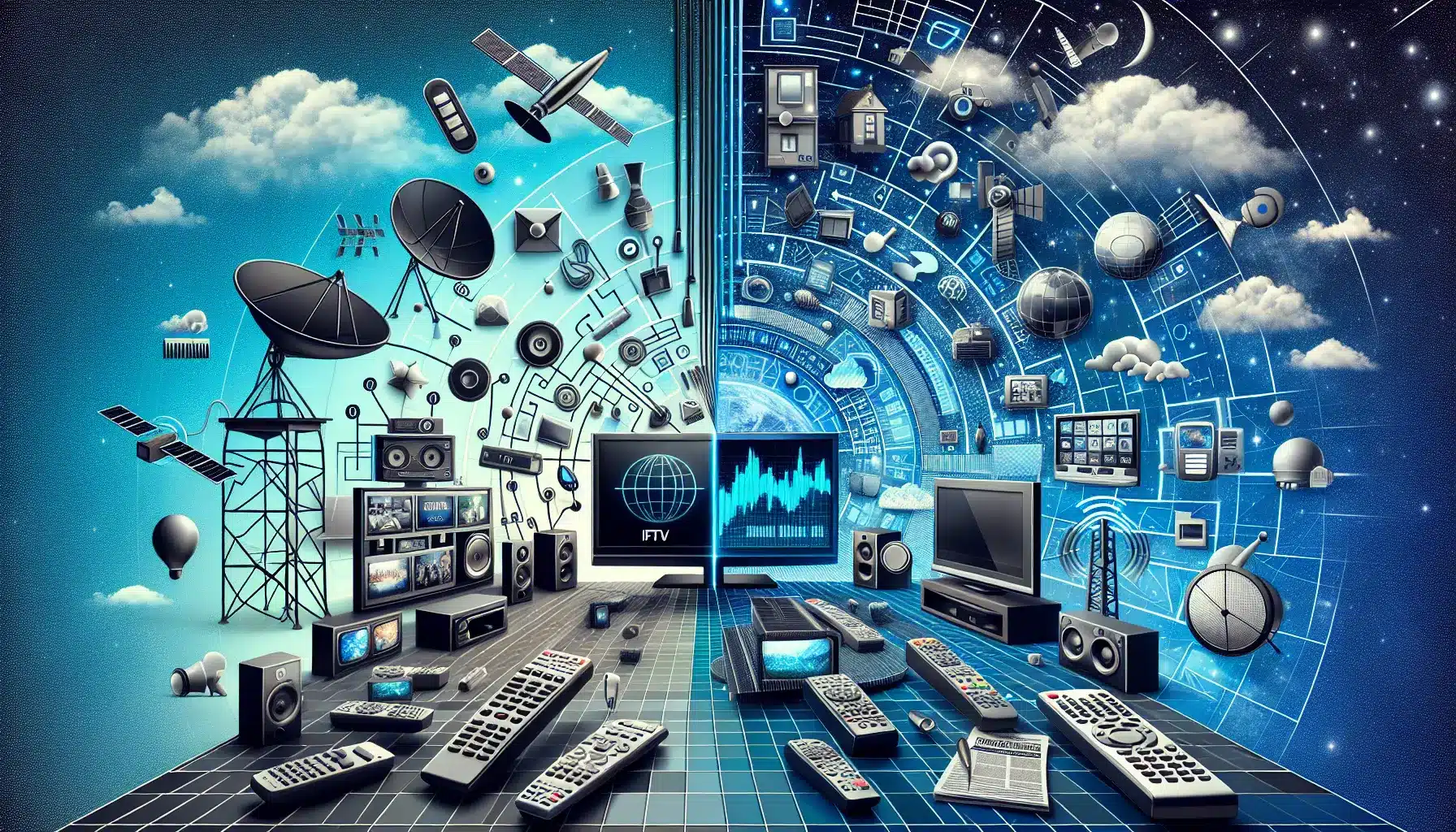
Estimated reading time: 8 minutes
Key Takeaways
- Definition: IPTV stands for Internet Protocol Television, a method of delivering TV content via the internet.
- Distinguishing Feature: Unlike traditional TV, IPTV requires a stable internet connection and provides a variety of services like live channels and video on demand.
- Versatile Technology: This technology enables features such as catch-up TV and personalized recommendations.
- Potential Challenges: Users might experience buffering or issues if their internet speeds are insufficient.
- Future Trends: Expect greater integration with emerging technologies like 5G and AI for enhanced viewing experiences.
Table of Contents
Understanding IPTV: The Basics
IPTV (Internet Protocol Television) represents a revolutionary shift in how we consume television content. Unlike traditional cable or satellite TV, IPTV delivers television programming and video content through internet protocol networks. This technology enables viewers to stream both live TV channels and on-demand content through their internet connection.
Think of IPTV as your cable TV service delivered through the internet instead of traditional copper cables or satellite dishes. It transforms television signals into data that travels through the same networks carrying your emails and web browsing.
IPTV Meaning: More Than Streaming
IPTV stands apart from regular streaming services in several key ways. While Netflix and similar platforms operate over the open internet, IPTV typically functions within a controlled network environment managed by telecommunications companies or internet service providers.
This distinction matters because IPTV offers:
- Live television channels
- Video on demand (VOD) content
- Interactive features like program guides and DVR capabilities
- Higher quality streaming through dedicated bandwidth
How Does IPTV Work?
IPTV converts traditional TV signals into small data packets that travel through IP networks. Here’s the process:
Content Processing
- TV content is captured and digitized
- Video files are compressed using various codecs
- Data is encrypted for security
Distribution Network
- Content travels through high-capacity fiber optic networks
- Content Delivery Networks (CDNs) ensure smooth delivery
- Streaming protocols like HTTP, RTP, and RTSP manage transmission
Key Features of IPTV Services
Modern IPTV systems offer sophisticated features that enhance the viewing experience:
Content Access
- Live TV streaming of traditional channels
- Video on demand libraries
- Time-shifted programming (catch-up TV)
- Network Personal Video Recorder (nPVR) functionality
User Experience
- Interactive program guides
- Multi-device compatibility
- Personalized content recommendations
- Parental controls
Advantages of IPTV
IPTV offers several benefits over traditional television services:
- Cost-effective compared to cable packages
- Flexible viewing across multiple devices
- High-quality streaming options (HD and 4K)
- Interactive features and personalization
- No geographic limitations (with proper service)
Potential Drawbacks
Users should consider these limitations:
- Requires stable, high-speed internet connection
- Possible buffering during peak usage times
- Quality depends on network conditions
- Some services may have legal concerns
- Security risks if not properly protected
IPTV vs Traditional Services
Understanding how IPTV compares to other options helps in making informed choices:
IPTV vs Cable TV
- More flexible viewing options
- Lower infrastructure costs
- Enhanced interactive features
- Better value for money
IPTV vs Streaming Services
- Includes live TV channels
- Often better streaming quality
- More comprehensive content packages
- Traditional TV experience with modern features
The Future of IPTV
IPTV continues to evolve with technology advancements:
- Integration with 5G networks for improved performance
- Enhanced artificial intelligence for personalization
- Better compression technologies for 4K and 8K content
- Increased focus on security and content protection
Choosing an IPTV Service
Consider these factors when selecting an IPTV provider:
- Content library size and variety
- Streaming quality options
- Device compatibility
- Customer support availability
- Price and contract terms
- Legal compliance and licensing
IPTV represents the future of television consumption, combining traditional TV’s reliability with modern streaming convenience. As internet infrastructure improves and services evolve, IPTV will likely become an increasingly popular choice for viewers worldwide.
Frequently Asked Questions
What is IPTV?
IPTV stands for Internet Protocol Television, which uses the internet to deliver TV programming and video content.
How is IPTV different from traditional TV?
Unlike traditional cable or satellite TV, IPTV delivers content through internet protocol networks, allowing for more interactive and on-demand features.
Do I need special equipment for IPTV?
Most IPTV services can be accessed on various devices like smart TVs, smartphones, or dedicated set-top boxes with internet connectivity.
What are the common IPTV issues?
Common issues include buffering, poor video quality, and missing channels, often related to internet connectivity or service provider limitations.
Is IPTV legal?
While IPTV technology itself is legal, some IPTV services may operate without proper licensing. Always ensure your service provider complies with legal standards.



